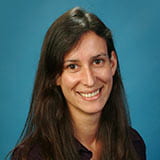CLeaR Fellows 2015 – Dr Keri Moyle
Tahi: Encouraging expertise in the way students engage with learning
 Keri is Associate Dean (Students) for the Faculty of Engineering, as well as teaching in the Engineering Science department. She began teaching at the University of Oxford, where she completed a PGDipLATHE with a dissertation entitled Seeing and believing: Intuition and visualisation in undergraduate engineering, before moving back to NZ in 2008.
Keri is Associate Dean (Students) for the Faculty of Engineering, as well as teaching in the Engineering Science department. She began teaching at the University of Oxford, where she completed a PGDipLATHE with a dissertation entitled Seeing and believing: Intuition and visualisation in undergraduate engineering, before moving back to NZ in 2008.
She is interested in the design of learning activities and courses to better encourage the construction of expert-type knowledge structures and cross-course knowledge in learners. She has developed software for curriculum mapping (Compass: https://compassnext.auckland.ac.nz), which will be rolled out soon for staff use in three faculties, and hopes to further research and design the student-facing side of this during the 2015 Fellowship.
Student learning at its best causes movement from the behaviours and knowledge structures of the novice towards those of the expert; student learning at its worst rewards successful engagement with a large quantity of disconnected information. In encouraging students to become good students it is possible to miss the chance to also encourage them to become good engineers, or good doctors, or good professionals in their own context, thus affecting motivation, engagement, and their ability to see beyond the next summative assessment.
The Compass project is mentioned under the theme of Student Engagement and Achievement because the student-facing side could be configured to exploit the expert knowledge available through the staff curriculum mapping process in a way that is significant to students. Possible ideas are shown on the website above.
Keri believes that in order for students to become engaged with university learning in a meaningful way – that is, one that encourages them to become experts rather than expert students – the links between concepts must be made overt, and the manner in which these links are developed should be aligned to encouraging development of expert-like knowledge structures. Research and investigation into the student-facing side of Compass will enable these links to be forged in a manner of both practical and pedagogical benefit.